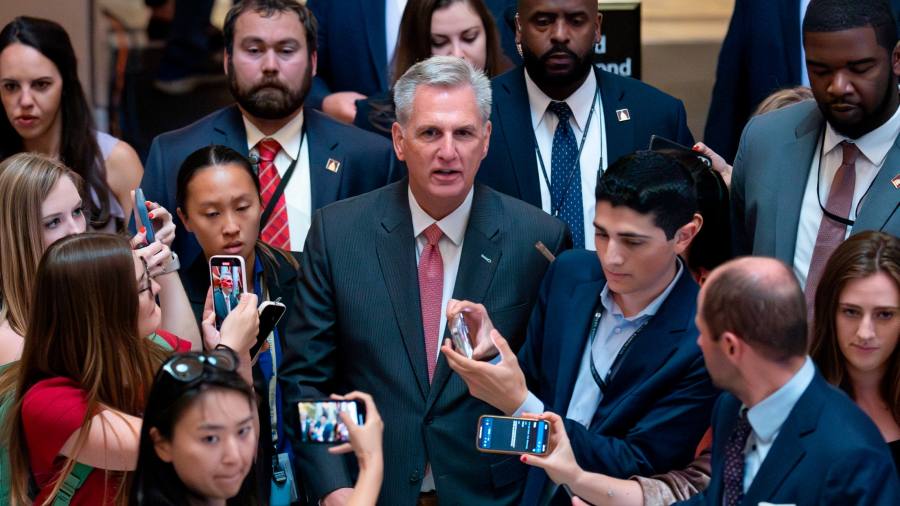The White House and House Republicans hurried on Friday to finalise a deal on government spending that would avert an unprecedented default on US debt and remove a huge cloud of uncertainty hanging over the country’s economy.
Negotiators for US president Joe Biden and Republican House Speaker Kevin McCarthy were on Friday meeting virtually and speaking by phone to settle the remaining sticking points in the potential agreement.
People close to both sides have said they have been moving closer to a deal that would increase the US’s borrowing limit for two years, until after the 2024 general election, while setting caps that would curb spending growth over the same time period.
“I’m going to work as hard as we can to try to get this done, get more progress today and finish the journey. I’m a total optimist,” McCarthy said as he walked into the Capitol on Friday morning. “It’s really coming down to one thing: this has been about spending. Democrats have never wanted to stop the amount of spending.”
In a CNN interview earlier, Wally Adeyemo, the deputy US Treasury secretary, echoed the upbeat tone: “What I can say is that we’re making progress and our goal is to make sure that we get a deal because default is unacceptable.”
He added: “The president has said it, and the Speaker has said it. And we have to get something done before early June when the secretary has said that it’s highly likely that we will no longer have the resources to pay our bills.”
The urgency to strike a deal had been mounting after US Treasury secretary Janet Yellen warned that a potential default could happen as early as June 1. Once a deal is reached, it could take several days for any legislation to be approved by the Republican-controlled House of Representatives and the Democrat-controlled Senate, before it is enacted into law by Biden.
The vote in the closely divided House will be particularly tricky because rank-and-file Republican and Democratic lawmakers have already expressed dissatisfaction with the emerging deal.
In addition to setting spending caps for the next two years, the possible compromise will also likely involve new work requirements for some social safety net programmes, legislation to speed up permitting for big investments and a smaller funding boost for the Internal Revenue Service to audit wealthy taxpayers.
An agreement, if successfully enacted, would remove a big source of risk for the US economy and financial markets, which are already grappling with turmoil in the banking sector and the impact of higher interest rates to tame inflation.
Negotiations to solve the fiscal crisis only kicked into high gear in recent weeks, forcing Biden to cut short a trip to Asia in order to follow the talks directly in Washington. Even though a deal was moving closer, it was still not certain that it could be finalised by the end of Friday, meaning the talks might spill over into the long Memorial Day weekend in the US.
In the wake of reports of progress in debt ceiling talks, US stocks were higher, with the S&P 500 up 1 per cent in mid-morning trading. Treasury yields, which rose earlier in the morning following stronger than expected economic data, continued to climb as investors remained hopeful the US government could avoid a default.
Additional reporting by Peter Wells in New York
Read the full article here




